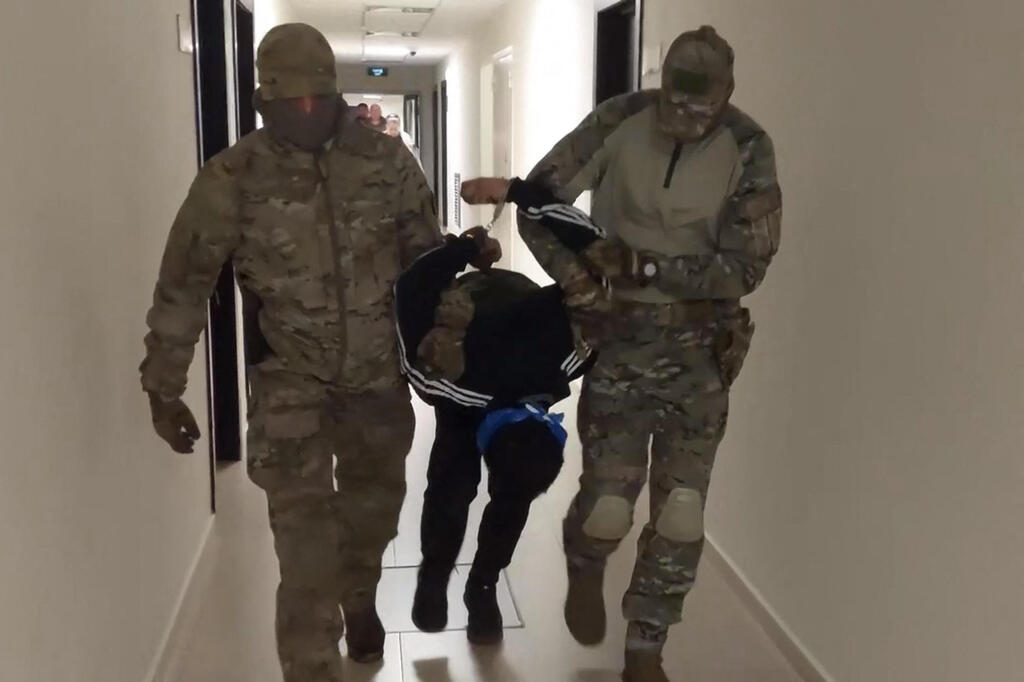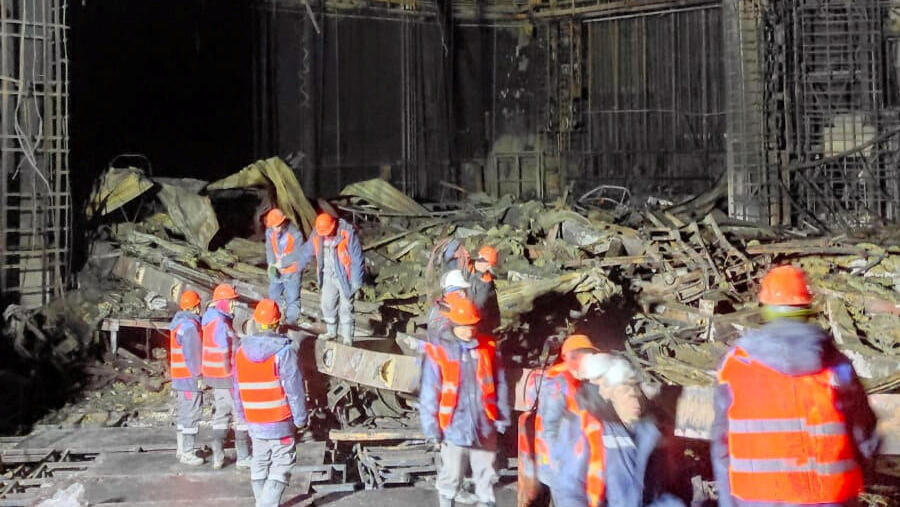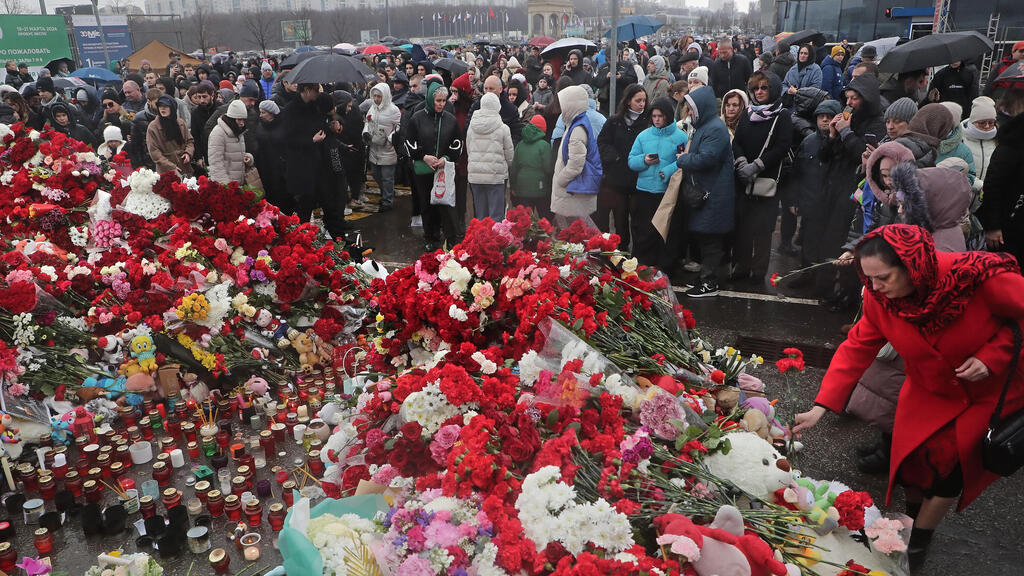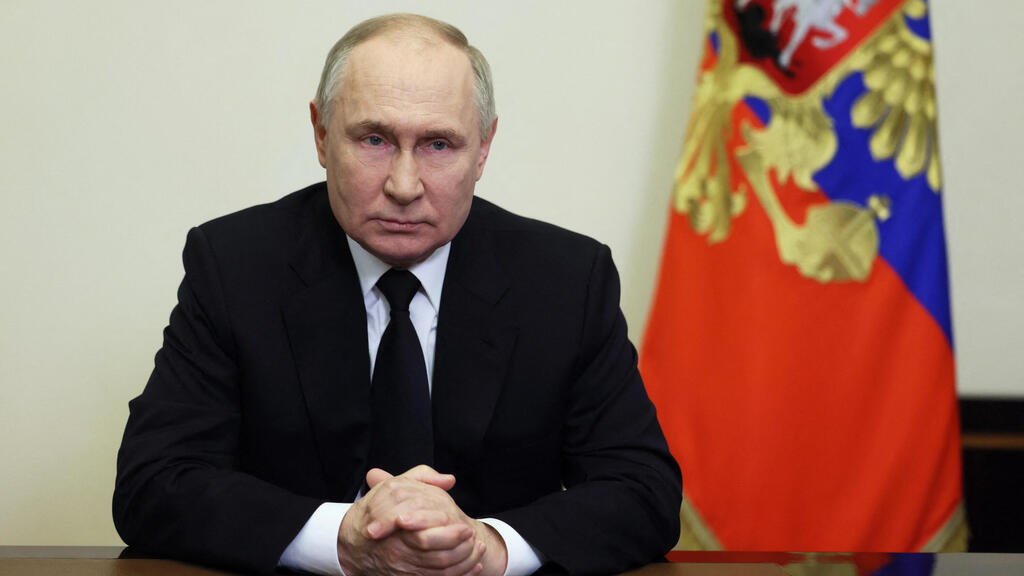The motivation behind IS attack in Moscow
The brutal assault against the audience that was seating itself ahead of a concert in a Moscow suburb was an Islamic terrorist attack. Some 137 persons lost their lives in this attack, which was the most brutal in Russia in the past 20 years.
Islamic State has claimed responsibility for the attack, first through the organization’s news agency A'maq which the Russians dismissed as “fake news”. Russia tried to link the attack to Ukraine using every means at its disposal.
The attack was carried out by ISIS-K (Islamic State - Khorasan), the Islamic State's branch in Afghanistan, Iran and Pakistan, known as one of the group's most active offshoots in recent years. The method of attack, with gunmen using automatic weapons to storm a building, aligns with typical IS tactics.
Why did ISIS-K attack Russia?
ISIS-K is the most active branch of the Salafi jihadist group, executing 21 attacks across nine countries this year, compared to eight last year.
This murderous branch, which has been under pressure from the Afghan special forces and the American forces, took advantage of the United States’ withdrawal from Afghanistan in 2021 to strengthen itself and recruit more fighters in each one of Afghanistan’s 34 provinces.
The U.S. withdrawal from Afghanistan has also been exploited by Russia to broaden its influence in south-central Asia. Russia has strengthened its ties with Iran on the one hand and with the Taliban regime in Afghanistan on the other. This has of course incensed IS.
Just recently, the Taliban sent Russia its first military attaché, Ahmad Yasser, son of one of the organization’s senior leaders. The Taliban, through military cooperation, is interested in strengthening relations with Moscow, which on its part is interested in increasing its influence in the region.
Both IS in general and the Khorasan Province branch, in particular, have long been declaring their intention to attack Russia, citing the past occupation of Afghanistan by the Soviets in the 1980s, the long history Russia has of operations against Muslim communities in Russia, particularly in the Muslim republics of Chechnya and Dagestan and Moscow's support for the brutal regime of Bashar al-Assad in Syria.
IS launched various attacks in Russia between 2016 and 2019, while other attacks were foiled between 2021 and 2023.
Another piece of the puzzle is that most ISIS-K fighters that have been arrested in the past two years in Europe have been Russian nationals or of Central Asian descent (like the Tajik terrorists who carried out the Moscow concert hall attack).
Last month, a Russian citizen was arrested in Poland and accused of ties with Islamic State, while another was detained in Turkey working at a nuclear facility.
Earlier this month, the U.S. and five other countries warned Russia about planned ISIS-K attacks in Moscow, which the Kremlin dismissed, claiming they were trying to discredit Russia.
Most ISIS-K attacks in recent years have occurred in Afghanistan, targeting the Shiite Hazara community. Notably, an ISIS-K suicide bombing outside Kabul airport in August 2021 during the U.S. evacuation killed 170 civilians and 13 U.S. service members.
Another such example is an IED attack on the Russian embassy in Kabul in September 2022 which killed at least six people.
ISIS-K also carried out a suicide bombing in Kerman in Iran in January 2024, which killed almost 100 people at a ceremony marking the fourth anniversary of the killing of the former commander of the Quds Force, Qasem Soleimani.
Iran and Russia even have a strategic alliance and they share many common interests, including the Iranian presence in Syria and the fight against IS. Both countries are also members of a coalition referred to as the “4+1” coalition, which comprises Russia, Iran, Syria and Iraq, with the “+” representing Hezbollah.
The coalition formed in 2015 set up a Baghdad-based information exchange center on IS, facilitating coordinated operations against the group. Russia's involvement, aimed at supporting Assad and combating IS, positions Moscow as a perceived enemy by the radical Salafi group, accused of oppressing Sunnis worldwide, akin to the U.S.
Russia's backing of Hamas and hosting its delegations in Moscow is significant because IS opposes Hamas, mocking its alliance with Shiite Iran, deemed heretical by the Salafi group. IS also criticizes Hamas for its connections with Iran and support for Al-Qaeda, from which IS splintered off, viewing the Iran-Al-Qaeda-Hamas axis as a unified threat, especially as Al-Qaeda's leader, Saif al-Adel, resides in Tehran.
A conflict far from the world’s attention
In addition to its hostility toward Russia due to the events in Syria, the organization is also in confrontation with the Russians in an arena far from global attention, the Sahel region in Africa.
5 View gallery


Russian troops leading captured IS terrorist after the attack
(Photo: AFP PHOTO / RUSSIAN INVESTIGATIVE COMMITTEE" - NO MARKETING NO ADVERTISING CAMPAIGNS - DISTRIBUTED AS A SERVICE TO CLIENTS)
Affiliates of IS, including Boko Haram factions that have joined IS, along with ISIS Sahel and ISIS West Africa, have been operational for years in regions like Mali, Niger, Burkina Faso and Mozambique in East Africa.
Following the pattern observed in Afghanistan, Russia steps in where the United States withdraws as happened in Chad, Mali and Niger after U.S. and French troops pulled out, with Russia offering military support through the Wagner Group to combat radical Islam.
This involvement makes Russia a target for IS attacks, as its forces confront IS terrorists seeking to expand the Islamic caliphate in Africa.
 Eran Lahav
Eran LahavDespite the rivalry between IS and Al Qaeda, both are strengthening in regions like the Sahel and Horn of Africa and even in East Asia, such as the Philippines, far from global scrutiny.
The resurgence of the terror threat from these groups, highlighted by the Moscow attack, should alert the West to the dangers posed by IS, especially ISIS-K, and the ongoing conflict between radical groups in remote areas poised to target Western interests.
- Eran Lahav is a researcher at the Israel Defense and Security Forum - the IDSF, specializing in terrorism, global Jihad and Iranian proxies, an entrepreneur and podcast host.





